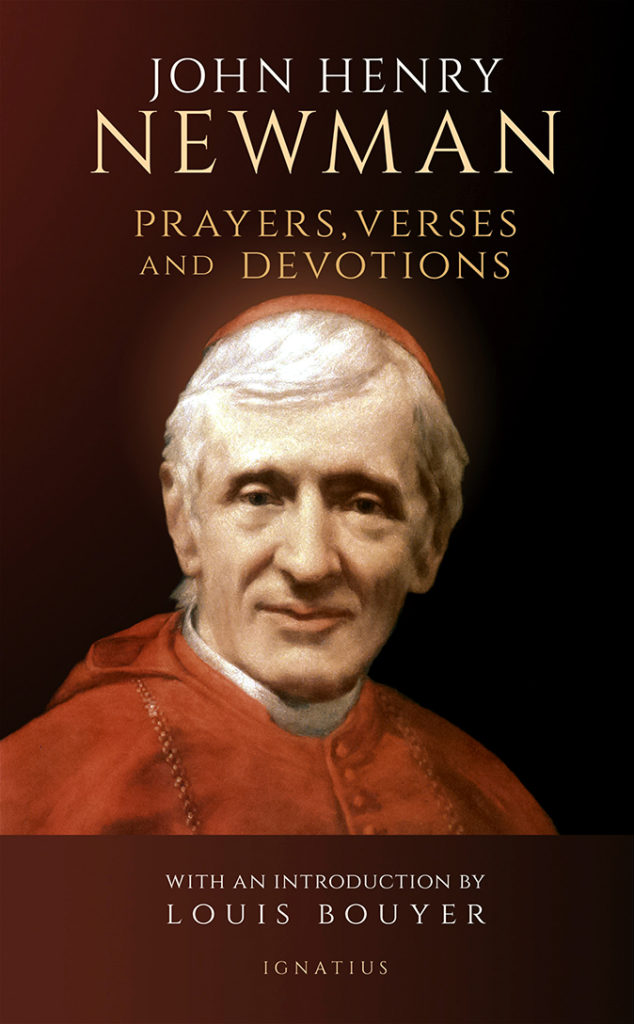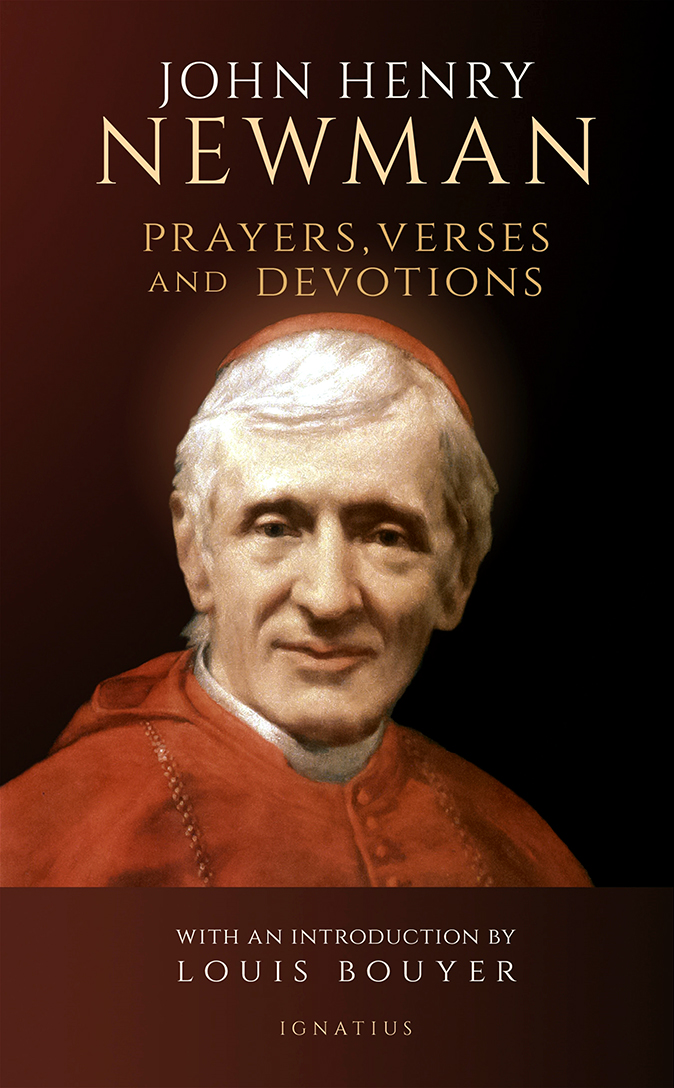It’s October, All-Souls Day on the event horizon; and, it is the month that John Henry Newman is presented to the Church as a saint. Timely, Ignatius Press re-releases a collection of Newman’s devotional writings, titled, “John Henry Newman: Prayers, Verses and Devotions.”

‘John Henry Newman: Prayers, Verses and Devotions’
Author: St. John Henry Newman
Publisher: Ignatius Press
Length: 765 pages
Release Date: Sept. 25, 2019
Available at: Kino Library
The importance of Newman to the Church cannot be understated. As a cardinal, Newman produced a theology that places demands on the Catholic believer: his distinction between notional assent and real assent. We give our assent when we say “yes” to something, and here, Newman goes straight to the heart of reality of our faith. Notional assent to be Christian, he says, is one that is intellectual, emotional and conceptual. We are Christian as a philosophy, an ideology, a representative faith. One is Christian as a mere type, like millions of other Christians.
Real assent, on the other hand, is quite the opposite: a mind-boggling understanding of the deep love realized by our creation as the image of God — the imago Dei — and the unimaginable love with which His Son walked to the cross for our sake. This understanding is visceral and is such that we can actually imagine the sacrifice of the Cross. Big difference. Huge difference.
This volume of Newman’s writings is rich in scope and deep in this distinctive theology. He translates the Order of Prayer written by Bishop Lancelot Andrewes of the Church of England in the late 16th century, who brought the daily devotions into the realm of modern thinking.
The second part of the volume contains Newman’s own Devotions and Meditations, all extensive and with great detail. These represent the personal turn that Newman took in post-Tridentine Catholicism.
His Devotions included those feasts and ideas associated with Mary, the ones that comprise the Loretto Litany for the month of May: the Immaculate Conception, the Annunciation, Our Lady’s Dolours (i.e. sorrows) and the Assumption. Each one is rich, revealing a massive amount of inner spirituality and thought.

Newman has many individual prayers sprinkled throughout the volume, such as, “Prayer for a Happy Death.” It sounds fun, but it is actually very serious showering the reader with a plethora of help from the Lord in the time of dying. He calls for support from the Sacraments, consolations, the Eucharist, Prayer for the Sick and Dying, and Mother Mary’s breath. It’s poetic language that borders on the mystical reminiscent of St. Catherine of Siena and Her Dialogue.
Newman has an entire course of prayer for the whole week and instruction on the various forms of intercession. His meditations are abounding and sublime covering whole literary genres, poetry in his verses, prose in his meditations and instructions. His mediations cover things like: the Stations of the Cross, God and Soul, Sin, Hope in God, the Power of the Cross, the Resurrection, God With Us, the Forty Days Teaching, the Ascension, the Paraclete, Holy Sacrifice, and the Providence of God among many, many, other things. His nearly 200 verses cover everything from sleeplessness to humiliation to pusillanimity. Any book that gives health advice and addresses cowardice is a book that looks at it all.
On top of all this, all around the country at non-Catholic colleges and universities, centers for residence and resources for Catholics serving those institutions of higher learning were named in honor of Cardinal Newman and his writings. We have a Newman Center in Flagstaff at Northern Arizona University, in Phoenix at Grand Canyon University and in Tempe at Arizona State University.
I’ve written and read many books on Catholicism, the Church, and its various concerns, but this volume of John Henry Newman is the most intense, especially for its small size. As we all continue with our formation as faithful Catholics reading Scripture, the Catechism, the Social Teachings of the Church, the Church Fathers and all the Encyclicals, toss John Henry Newman’s book in there. You will be eminently better for it.







